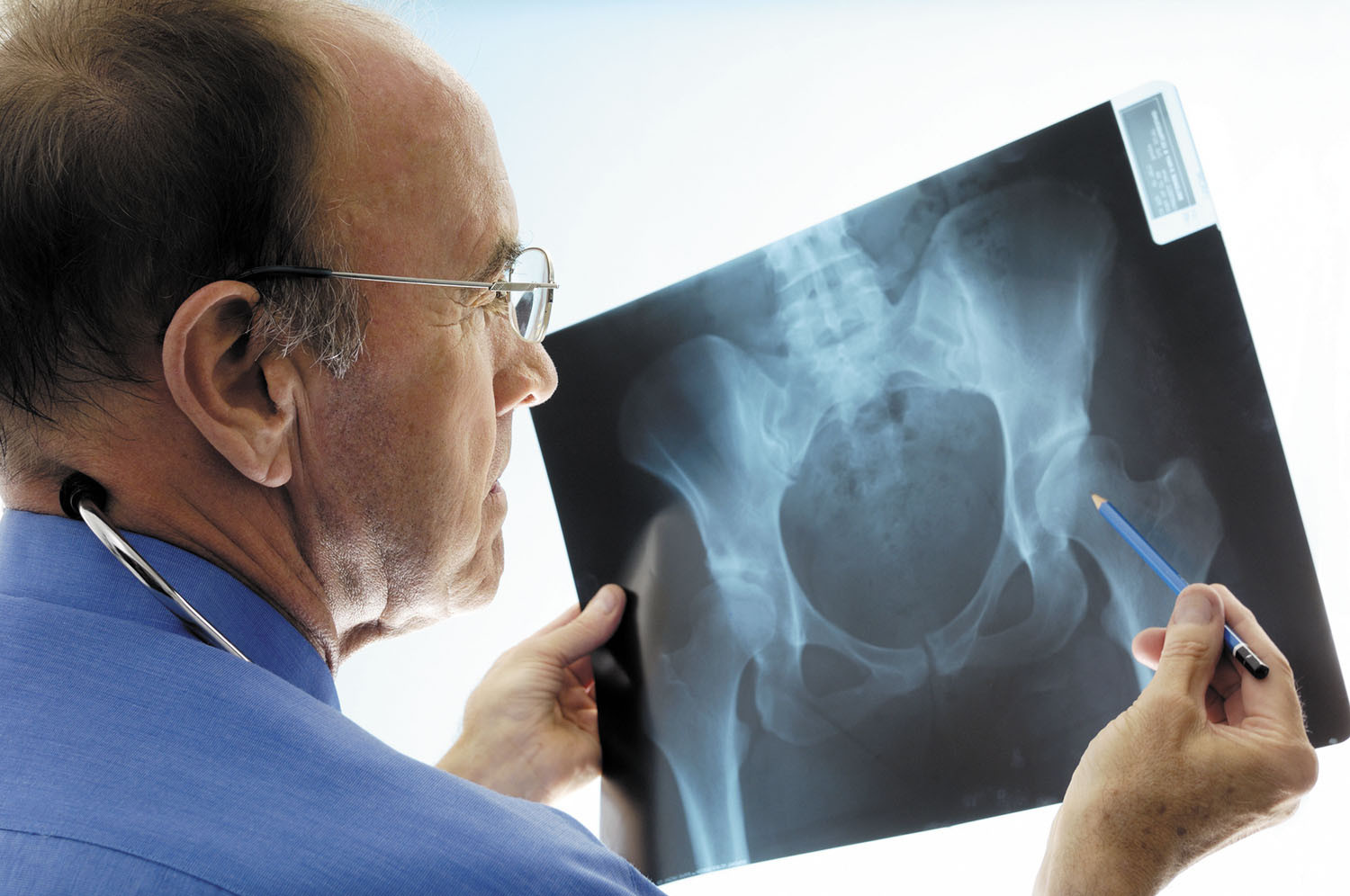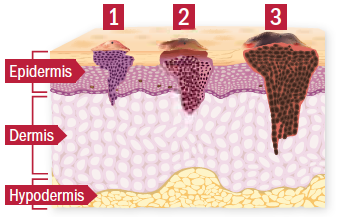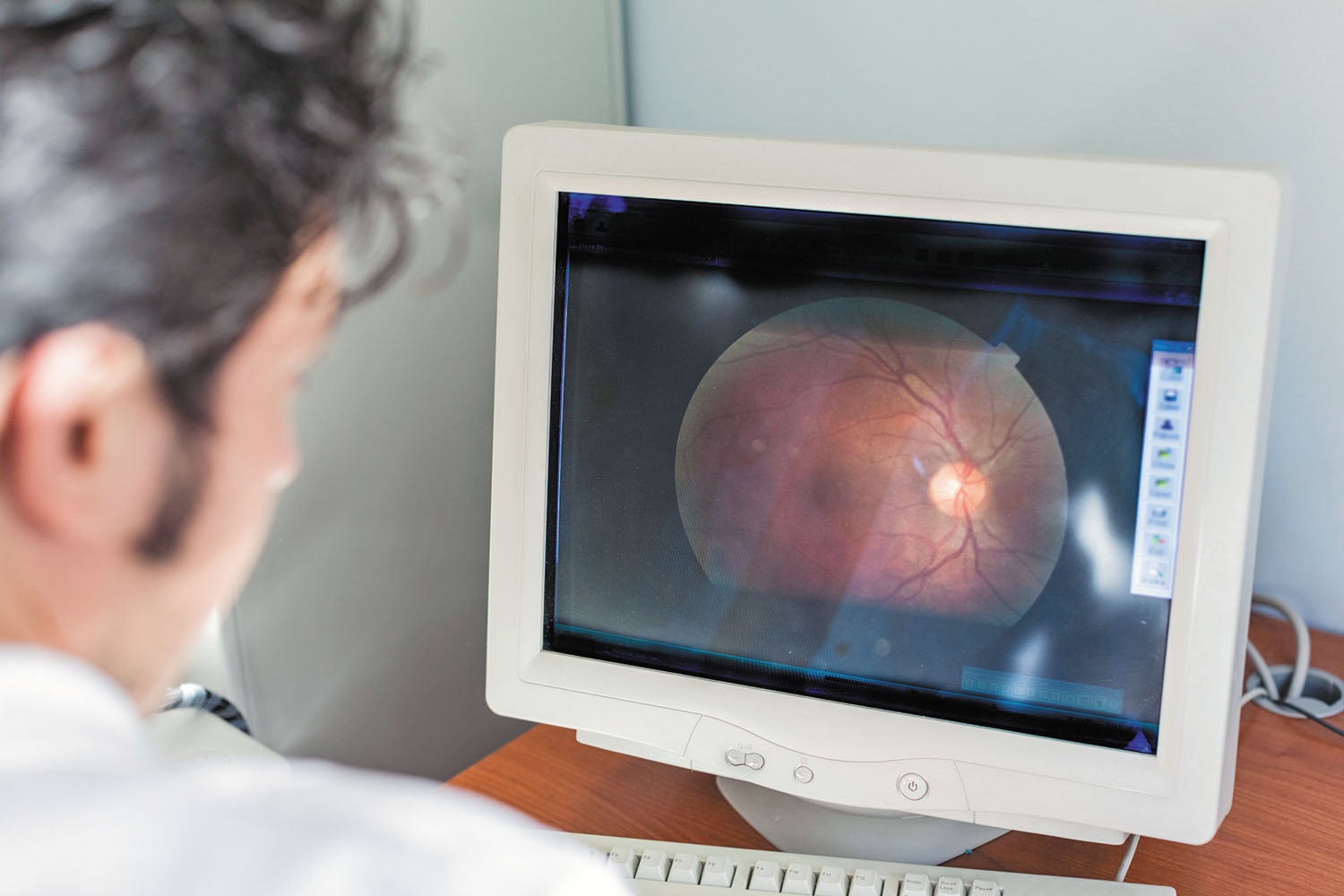
New thinking about plaque in arteries that feed the brain

Want to prevent shifting teeth? Maybe you need retainers

What you need to know about the new dietary guidelines

Food that’s healthier for people and planet can be cheaper, too

New evidence that polyphenol-rich foods help the heart

8 simple ways to reduce ultra-processed foods in your diet

How to curb your stress eating

How to spot Parkinson’s disease symptoms

Heart failure symptoms in women: How they’re different

GERD diet: Foods to avoid to reduce acid reflux
Medical Tests & Procedures Archive
Articles
HPV test may be better than traditional cervical cancer screening method
Research we're watching
A test that screens for human papillomavirus (HPV) beat a commonly used cervical cancer screening method in detecting changes that may lead to cervical cancer, according to a study published July 3 in The Journal of the American Medical Association. Some 19,000 women were screened for cervical cancer using either the HPV test or a more traditional and commonly used liquid-based cytology test. After 48 months, all the women were tested again using both tests. Researchers found that among women who'd had a normal initial screening, those who'd been screened with the HPV test had significantly fewer grade 3 or worse precancerous cervical changes at the final testing compared with those screened with liquid-based cytology.
In response, the U.S Preventive Services Task Force now recommends either HPV testing only once every five years or liquid-based cytology once every three years for women ages 30 to 65.
Don’t wait until you turn 50 to screen for colon cancer
According to a new guideline, testing should start at age 45, but not everyone needs to have a colonoscopy. Other tests are also available.
Colon cancer screenings for people at average risk for the disease should start at age 45 instead of 50, says a new guideline from the American Cancer Society (ACS).
The change to the screening recommendation, which was published in the May 30 issue of CA: A Cancer Journal for Clinicians, was made because the number of colon cancer cases among adults under age 55 rose 51% from 1994 to 2014, and colon cancer deaths in this age group rose 11% from 2005 to 2015.
Narrowed aortic valve with no symptoms
Ask the doctor
Image: © andresr/Getty Images
Q. I was recently diagnosed with aortic stenosis after my doctor heard a slight heart murmur and referred me for an echocardiogram. I don't have any symptoms, so the cardiologist recommended that I get periodic echocardiograms to monitor the condition. Is there anything else I can — or should — do?
A. Aortic stenosis — also called aortic valve stenosis — occurs when the one-way valve inside the heart's largest vessel, the aorta, stiffens and becomes clogged with calcium deposits. As a result, the valve doesn't open as easily. During a heartbeat, as the heart's main pumping chamber (the left ventricle) contracts, pressure builds up behind the aortic valve. This creates the turbulent blood flow that a doctor can hear through a stethoscope.
Radiation from heart imaging: What you need to know
Certain tests involve small amounts of radiation. Here's some perspective on the benefits and risks.
Cardiologists have many options for visualizing the heart, some of which involve exposure to radiation. Used appropriately, these tests can identify possibly life-threatening conditions, such as dangerous heart artery blockages. In recent years, the accuracy of many of these noninvasive tests has increased. They're also being used with increasing frequency.
Because ionizing radiation can damage cells, potentially raising the risk of cancer, experts acknowledge that imaging tests that involve radiation should be used judiciously. Earlier this year, the American College of Cardiology published a consensus statement on the best practices for safe and effective use of radiation in cardiac imaging tests.
Should I get a bone density test?
On call
Image: © Fertnig/Getty Images
Q. I'm 65 years old and have never had any bone health issues. Should I get a bone density test?
A. Bone density testing is a specialized x-ray technique used to diagnose osteoporosis (thin bones), a condition that increases the lifetime risk of fracture by six times in men.
Save your skin from cancer
Rates of the two most common skin cancers have more than doubled over the past decade. Here's how to protect yourself.
When it comes to skin cancer, there's good news and bad news. First, the bad news. A report published in the June 2017 Mayo Clinic Proceedings found that cases of basal cell carcinoma (BCC) and squamous cell carcinoma (SCC) skin cancers have risen 263% and 145%, respectively, over the past decade.
The good news? BCC and SCC are rarely life-threatening and they're usually easy to treat if they're caught early. Plus, there are simple ways to prevent them.
Tests your doctor may order to determine whether you have heart disease
Heart tests help show artery blockage and assess the risk of heart attack
If you are at high risk for heart disease or have a symptom such as shortness of breath or discomfort in your chest, your doctor may order certain heart tests. But there's more to testing than simply finding out if you have heart disease. Your doctor may also want to determine whether the fatty plaques inside your blood vessels pose a high, medium, or low risk for a heart attack. The answer will help determine whether you need treatment, and if so, which type of treatment will be best.
No single test is better than another, and no test is appropriate for everyone. "The best test for an individual is the one that provides the information needed to guide management," says Dr. Ron Blankstein, a cardiovascular imaging specialist at Harvard-affiliated Brigham and Women's Hospital.
Harnessing big data to help the heart
Machine learning may improve the way doctors detect heart disease.
Image: © exdez/Getty Images
Imagine a world in which a photo of your eye — taken with your smartphone — could determine your risk of a heart attack, and your smartwatch could estimate your odds of experiencing a stroke. Sounds pretty futuristic, right?
In fact, preliminary studies showing the feasibility of both approaches have already been published. They're just two examples of the new wave of technology-based innovations (see "Transformative technologies") that are beginning to change health care as we know it.
Gene testing for antiplatelet drug response
Ask the doctor
Image: © wildpixel/Getty Images
Q. I understand there's a genetic test that can tell you how well you might respond to antiplatelet drugs. Do you recommend this test?
A. The short answer is no, not yet. For now, I think it is best to wait for the results from studies looking at personalized antiplatelet therapy. Also known as tailored medical therapy, personalized therapy refers to treatments that are based on your own information, including genetics. But first, I will address two other relevant questions: (1) what is antiplatelet therapy, and (2) who needs it?

New thinking about plaque in arteries that feed the brain

Want to prevent shifting teeth? Maybe you need retainers

What you need to know about the new dietary guidelines

Food that’s healthier for people and planet can be cheaper, too

New evidence that polyphenol-rich foods help the heart

8 simple ways to reduce ultra-processed foods in your diet

How to curb your stress eating

How to spot Parkinson’s disease symptoms

Heart failure symptoms in women: How they’re different

GERD diet: Foods to avoid to reduce acid reflux
Free Healthbeat Signup
Get the latest in health news delivered to your inbox!
Sign Up











